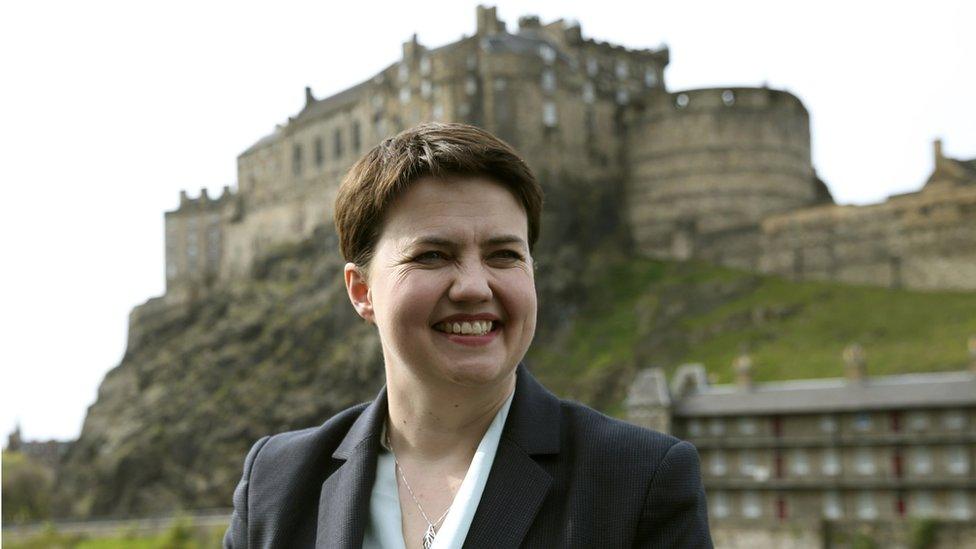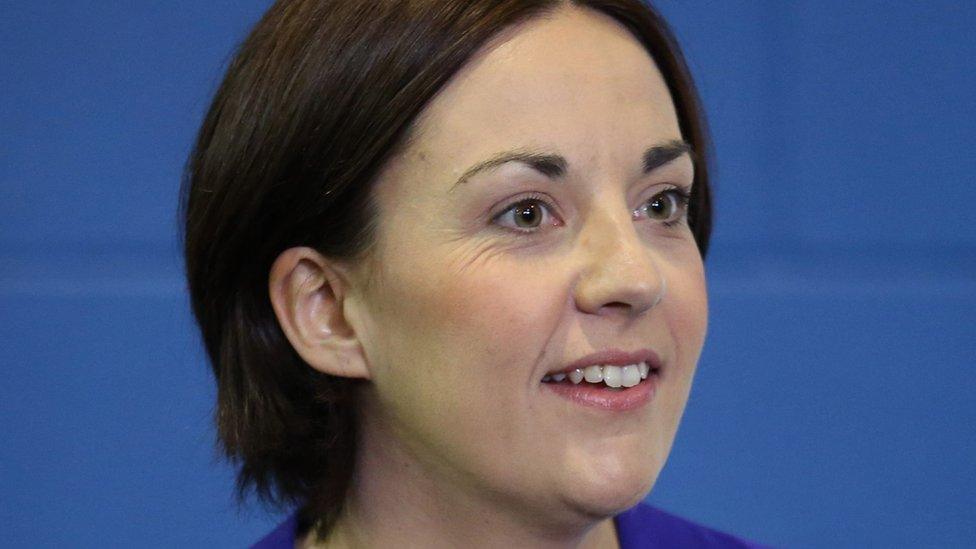Holyrood 2016: Ruth Davidson calls for unified opposition
- Published

Scottish Conservative leader Ruth Davidson has urged Holyrood opposition parties to unite to hold the SNP government to account.
She said she wanted to consult with other parties to find ways of creating "a parliament with teeth".
The Holyrood election on Thursday saw the Tories become the main opposition party in the Scottish Parliament.
The SNP plans to rule without a formal coalition deal after falling two MSPs short of an absolute majority.
Ms Davidson said a minority administration would provide an opportunity to hold the SNP "in check".
Her suggestions include ensuring the conveners of certain committees come from opposition parties, and for opposition party spokesmen and women to be given greater opportunity to question ministers.
'Simple reforms'
She said: "I said during the election campaign that we would press for a parliament with teeth. Before the new parliament gets under way, we have an opportunity to act on that.
"Too often during the last parliament, bad laws were swept in thanks to the SNP majority. Now they are a minority administration, it puts parliament back in control.
"Some simple reforms now need to be considered - and I want all opposition parties to find common cause in putting those forward.
"We can hold the SNP in check - and ensure better government and a stronger Scotland as a result."

Senior Labour figures have said Kezia Dugdale should remain as leader
The Conservatives secured 31 MSPs in the vote, overtaking Labour which was left with 24. The number of SNP MSPs fell by six, to 63.
Scottish Liberal Democrat leader Willie Rennie, whose party finished in fifth place behind the Greens, said opposition to the SNP needed to be "far wider than a narrow Tory agenda".
"On issues like tax there is more that unites the Tories with the SNP than divides them," he said.
"And on issues like justice they are more likely to chase cheap headlines than push for reforms which help cut offending and reduce the number of Scots who are imprisoned.
"On education there is no indication that they will press for the urgent investment that is required to make our schools the best again."
A number of senior Labour figures have rallied behind Kezia Dugdale, saying she should stay on as Scottish leader to rebuild support.
Former Labour first minister Lord McConnell praised Ms Dugdale, despite the "terrible" result for his party.
He told the BBC's Good Morning Scotland programme: "When Kezia took over last year as leader, she was a breath of fresh air. She remains a breath of fresh air.
"I think her demeanour during this campaign, her relentless focus on the most important issues for people in Scotland and the ways she's conducted herself during the campaign - and since Thursday night, to be honest - is exactly what I want to see in a leader of the Scottish Labour Party."
Federal option
Former Labour special advisor Paul Sinclair said Ms Dugdale was the party's "last chance" to save itself from oblivion" - although he was critical of her strategy during the election.
Writing in the Scottish Daily Mail, he said: "Labour needs a new story for Scotland. And it will only be able to craft one if it stops speaking to itself and truly listens to the concerns of Scots."
Glasgow City Council's Labour leader Frank McAveety said Labour needed to provide a coherent message on the constitution and suggested embracing the idea of a "federal Britain".
"That would be home rule for Scotland in a federal Britain," he wrote in the Daily Record. "The other parts of the Union would get equal powers for England, Wales and Northern Ireland.
"The House of Commons would be the federal chamber to which the home rule parliaments would send delegates.
"The precise details need working out - but if everything stays the same, we are tobogganing downhill to an independent Scotland and the break-up of the UK."